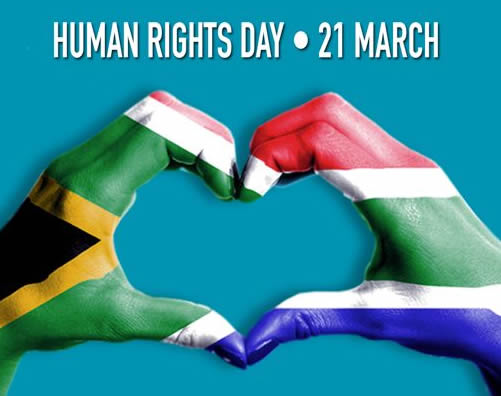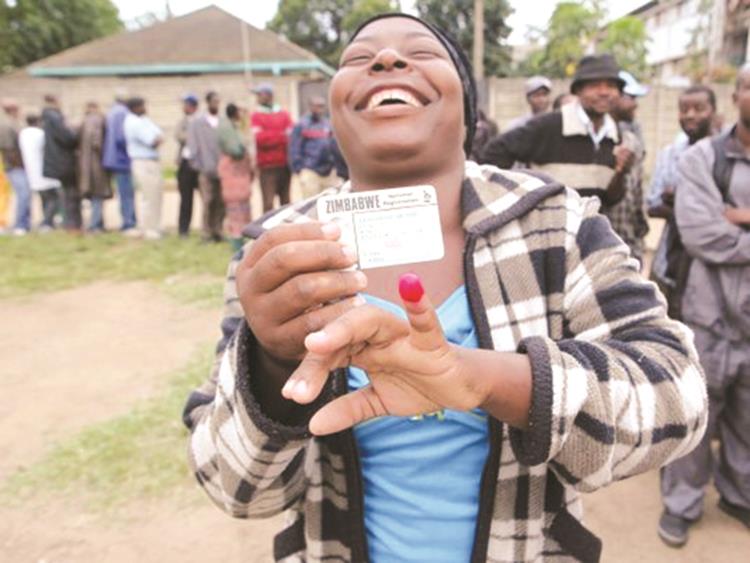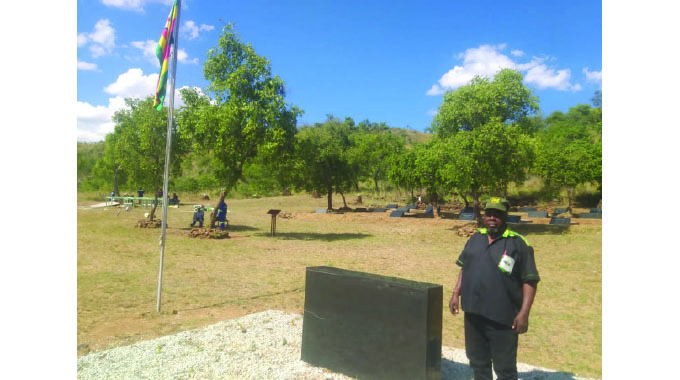SA’s (rather) misnamed holiday, airbrushed history

Tichaona Zindoga Political Editor
TODAY, South Africans are celebrating what is called Human Rights Day. In fact, the celebrations may well have begun in earnest at the close of last week, with schools and some universities enjoying a “long weekend”. There are working people that decided to have a day off yesterday, legally or otherwise, to fully enjoy the import of this holiday and long weekend.
The Human Rights Day, 21 March, is linked to the Sharpeville Massacre that took place 57 years ago, when the brutal apartheid police opened fire and killed 69 black people who were protesting the pass laws of the racist government.
One hundred and eighty more were reportedly injured as the police opened fire on 5 000 defenceless citizens.
There are several accounts about this day.
According to official sources, the context that gave rise to unrest was that in 1948, the Nationalist Party came to power in South Africa and formalised segregation in a succession of laws that gave the government control over the movement of Black people in urban areas.
“The Native Laws Amendment Act of 1952 narrowed the definition of Blacks with permanent residence in towns and cities. Legally, no Black person could leave a rural area for an urban one without a permit from the local authorities, and on arrival in an urban area, the person had to obtain a permit within 72 hours to seek work. The Reference Book, or Pass, included a photograph, details of place of origin, employment record, tax payments, and encounters with the police,” says the parliamentary website.
Blacks were unhappy with this dispensation and in 1956, 20 000 women marched to Union Building in Pretoria protesting the laws while in 1960, the Pan Africanist Congress (PAC) proposed an anti-Pass campaign to begin on March 21 1960.
“Black men gathered at Sharpeville without passes and presented themselves for arrest. The order was given to disperse, after which the Police opened fire on the crowd of men, women and children. Following the Sharpeville massacre, a number of black political movements were banned by the Nationalist government, but the resistance movement continued to operate underground,” explains the account. When the new majority government took over in 1994, President Nelson Mandela christened March 21 as the Human Rights Day.
Official festivities are held each year and this year President Jacob Zuma is expected to lead commemorations in Ginsberg, King William’s Town in the Eastern Cape under the theme: “The Year of OR Tambo: Unity in Action in Advancing Human Rights”.
A misnomer?
It is no doubt that an atrocity like the Sharpeville was an outrage and an excess by a racist regime bent on dehumanising and eliminating black people.
The United Nations recognises this and has named March 21 as the International Day for the Elimination of Racial Discrimination. The day was proclaimed in 1966 as the United Nations General Assembly called on the international community to redouble its efforts to eliminate all forms of racial discrimination.
This quickly brings to the fore issues around the interpretation of the day and whether the commemoration stands for the historical and political marker that it should be.
The UN places the day in its proper context, and that is likely to endure.
However, for South Africa the case appears to be different — and disappointingly so. The so-called Human Rights Day has fast lost its proper meaning as a day of recognising and marking the injustices that were suffered by black people.
(A snap survey among young people gave rather disappointing results.)
The day is not Sharpeville Day.
It is not Anti-Discrimination Day, either.
Rather it speaks of a broad range of human rights and values that do not reckon to history or the making of the current state — and it is problematic.
Can the reader believe that today the day, given its broadness as a Human Rights commemoration is now being claimed and appropriated in the most superficial and ahistorical ways?
We are told that the day is a celebration of SouthAfrica’s constitution.
According to the government, “Our Constitution is hailed as one of the most progressive in the world. The Constitution is the ultimate protector of our Human Rights, which were previously denied to the majority of our people under Apartheid. We commemorate Human Rights Day to reinforce our commitment to the Bill of Rights as enshrined in our Constitution.”
“On Human Rights Day, South Africans are asked to reflect on their rights, to protect their rights and the rights of all people from violation, irrespective of race, gender, religion, sexual orientation, whether they are foreign national or not — human rights apply to everyone, equally.”
We all admire South Africa’s democratic constitution and the rights enjoyed by its people, don’t we?
But then where is the historical context and baggage and identity of this particular day?
It does not take a genius to realize that a few years on, the outrage of history and the real significance of this day will be lost, wiped clean of memory as people enjoy rights such as sleeping with whoever they want, or, if they choose, with animals.
Such rights are obviously not what the Sharpeville 69 died for nor what the hundreds more lost limb for.
Ironically, in the realm of political and economic rights that the people fought for, black people do not fare too well.
Airbrushed history
It is not lost to students of South African history that in following a pacificist posture the black governments of South Africa has naively, to be fair, sought to airbrush some ugly moments and facts in its history.
That is, mainly where black people were hurt. We have to believe that this is reconciliation and progress.
It calls to mind another day — June 16, 1976. It is the day on which hundreds of the long suffering South African people, this time school children protesting about inferior education, were killed in cold blood by the apartheid regime in what was known as the Soweto Uprising.
The world over, thanks to the then Organisation of African Unity, the day since 1991 has been known as the Day of the African Child.
Interestingly, in South Africa it is just “Youth Day”, a dedication that surely will not excite interest in an ugly, formative past that should, however, not be forgotten too quickly, fraught as it is with lessons and indeed signboards for the present and future. But authorities here have other ideas.
In their wisdom, or lack of it, certain historical facts need to be blown clean, smooth ended and varnished.
The same goes for particular narratives and players of history.
The Sharpeville Massacre is a case in point. Little is said about the then Pan Africanist Congress leader Robert Sobukwe, a 34-year-old lecturer in African languages at Wits University who led the resistance to the Pass Laws and at the time of the massacre was leading a march to the Orlando police station.
Sobukwe’s militancy and role in the nationalist movement, in particular Black Consciousness, is often suppressed, at least to the admirers of his radicalism but he continues to inspire young people to this day.
The result of his role in anti-pass laws and Sharpeville led to the banning of the ANC and the PAC, ushering a new politics and tactics on both sides of the liberation divide. Today’s Human Rights Day is obviously blind to Sobukwe.
It may as well celebrate new rights of who to sleep with, perhaps even how, but ever so blind to the economic and political questions that nagged black people then as now which the world renowned Constitution does not exactly address.







Comments